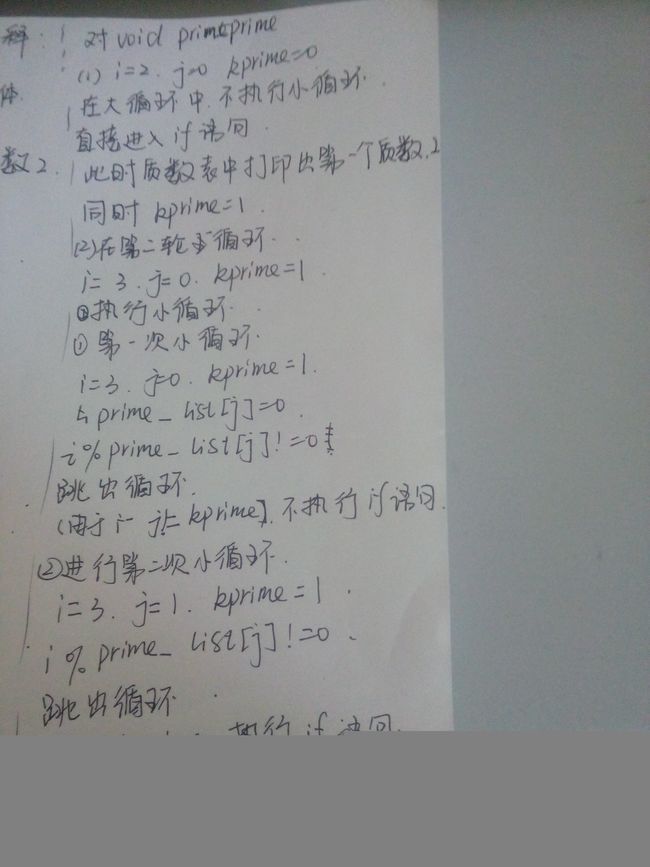- 铭刻于星(四十二)
随风至
69夜晚,绍敏同学做完功课后,看了眼房外,没听到动静才敢从书包的夹层里拿出那个心形纸团。折痕压得很深,都有些旧了,想来是已经写好很久了。绍敏同学慢慢地、轻轻地捏开折叠处,待到全部拆开后,又反复抚平纸张,然后仔细地一字字默看。只是开头的三个字是第一次看到,让她心漏跳了几拍。“亲爱的绍敏:从四年级的时候,我就喜欢你了,但是我一直不敢说,怕影响你学习。六年级的时候听说有人跟你表白,你接受了,我很难过,但
- 底层逆袭到底有多难,不甘平凡的你准备好了吗?让吴起给你说说
造命者说
底层逆袭到底有多难,不甘平凡的你准备好了吗?让吴起给你说说我叫吴起,生于公元前440年的战国初期,正是群雄并起、天下纷争不断的时候。后人说我是军事家、政治家、改革家,是兵家代表人物。评价我一生历仕鲁、魏、楚三国,通晓兵家、法家、儒家三家思想,在内政军事上都有极高的成就。周安王二十一年(公元前381年),因变法得罪守旧贵族,被人乱箭射死。我出生在卫国一个“家累万金”的富有家庭,从年轻时候起就不甘平凡
- 30天风格练习-DAY2
黄希夷
Day2(重义)在一个周日/一周的最后一天,我来到位于市中心/市区繁华地带的一家购物中心/商场,中心内人很多/熙熙攘攘。我注意到/看见一个独行/孤身一人的年轻女孩/,留着一头引人注目/长过腰际的头发,上身穿一件暗红色/比正红色更深的衣服/穿在身体上的东西。走下扶梯的时候,她摔倒了/跌向地面,在她正要站起来/让身体离开地面的时候,过长/超过一般人长度的头发被支撑身体/躯干的手掌压/按在下面,她赶紧用
- 每日一题——第八十二题
互联网打工人no1
C语言程序设计每日一练c语言
题目:将一个控制台输入的字符串中的所有元音字母复制到另一字符串中#include#include#include#include#defineMAX_INPUT1024boolisVowel(charp);intmain(){charinput[MAX_INPUT];charoutput[MAX_INPUT];printf("请输入一串字符串:\n");fgets(input,sizeof(inp
- 18-115 一切思考不能有效转化为行动,都TM是扯淡!
成长时间线
7月25号写了一篇关于为什么会断更如此严重的反思,然而,之后日更仅仅维持了一周,又出现了这次更严重的现象。从8月2号到昨天8月6号,5天!又是5天没有更文!虽然这次断更时间和上次一样,那为什么说这次更严重?因为上次之后就分析了问题的原因,以及应该如何解决,按理说应该会好转,然而,没过几天严重断更的现象再次出现,想想,经过反思,问题依然没有解决与改变,这让我有些担忧。到底是哪里出了问题,难道我就真的
- 蘩漪:新女性?利己主义者
赮_红雨
蘩漪是曹禺《雷雨》笔下的女性形象。对于她的喜爱,曹禺在之前的访谈中,就已经表达得很清楚了,蘩漪是他所倾心的女子的“代替者”。在这个女性身上有着曹禺最精心的描写,但同时她的身上又存在着一些时代的问题。图片发自App首先,繁漪是追求自由和幸福的新女性形象。她是精神悲剧的核心人物,她对周朴园的反抗,具有典型意义。她是位资产阶级家庭出身的小姐,受过五四新思潮的影响,她任性、傲慢,追求人格独立、个性自由和爱
- 读《人世间》有感
一0一
这个寒假,就如同朋友圈中的一段话:一闭眼,一睁眼假期还有5天,在一闭眼一睁眼假期还有12天;再一闭眼一睁眼假期还有20天;不敢睡,不敢睡啊……受疫情影响,这个假期变得漫长又煎熬,我也无时无刻不关注着疫情的变化。当然这样的一个假期,我还真得要感谢周翔,因为他有个爱看书的习惯,所以家里有不少他看过的书,可以让我随意挑选,因此也让我的假期不至于那么无所事事。这次我选了一本梁晓声的《人世间》,作为一名语文
- 运城寻访重逢石头纪实【严建设老照片395 集】 我简直能把你想透, 当我走进运城的时候。 我已急得热汗直流, 访问了十九个老头, 把晋南的小城转了三周。 虽然是悠久的思旧, 我仍然是牛样的执...
严建设
运城寻访重逢石头纪实【严建设老照片395集】我简直能把你想透,当我走进运城的时候。我已急得热汗直流,访问了十九个老头,把晋南的小城转了三周。虽然是悠久的思旧,我仍然是牛样的执拗。说什么变换的世情,泛起了过去的逝流,你就是真正的故友。踏破铁鞋的淡愁,已化为不废功夫的范畴,是就像远在天涯近在咫尺,就像是梦乡的邂逅,我紧紧地攥着你的手。你已长成了高高的个头,俊逸的容颜却很清瘦,你那样顽皮的童音,已变到老
- 阶段总结反思
轻争
马上就要进入10月份了,今天做一下前段时间的总结和反思。前段时间,日更、英语、健身、护肤坚持的比较好。阅读、书法坚持的不好。1.中间被迫停更半个多月,其余时间一直在坚持日更挑战。偶尔也有不想写的时候,就做一下摘抄。因为阅读(输入)没跟上来,所以写作(输出)质量有待进一步加强。2.英语做到了一周至少学习5天,每次不少于30分钟,但是小班课没有跟上更新速度,下一步要争取利用零碎时间补听小班课。3.减肥
- 展现思维导图魅力,不断挖掘人生宝藏
思维导图讲师Mandy
第13期最强思维导图训练营已经结束一周了,但是我依旧是感觉所有学员还在努力的学习,这些学员中有教师、学生、白领、公务员、宝妈等等,只要你努力,只要你想改变自己,任何行业,任何岗位都可以参与进来,28天足以让你见成效,在这28天中,我们的学员不仅仅是收获了一枚毕业证,最重要的是让自己的思维方式得到升级,今天的你为自己投资,明天的你就会感谢你今天的付出,我们来听一听来自13期最强思维导图训练营优秀学员
- C++菜鸟教程 - 从入门到精通 第二节
DreamByte
c++
一.上节课的补充(数据类型)1.前言继上节课,我们主要讲解了输入,输出和运算符,我们现在来补充一下数据类型的知识上节课遗漏了这个知识点,非常的抱歉顺便说一下,博主要上高中了,更新会慢,2-4周更新一次对了,正好赶上中秋节,小编跟大家说一句:中秋节快乐!2.int类型上节课,我们其实只用了int类型int类型,是整数类型,它们存贮的是整数,不能存小数(浮点数)定义变量的方式很简单inta;//定义一
- 《在战“疫”中成长致敬生活》观后感
梅子刘的刀
(作者:周晨)今天上午,我看了“我是接班人”网络大课堂《在战役中成长致敬生活》。有很多人拿出自己攒下的钱,默默地捐给了武汉,有几千块钱的、有几万块钱的,也有十几万块钱的。连小朋友也把自己的压岁钱捐给了武汉。有名环卫工人把自己五年的积蓄全部捐给了武汉。有名外卖小哥为医护人员买鞋子送吃的。还有已经治愈出院的新型肺炎病人捐了400毫升的血浆。还有位叫大树的叔叔,虽然他没有钱,但是他地里有蔬菜,捐了几大卡
- 2019-10-24
柒月的可可
今日上班无事,人又懒怠动,不知道如何打发这个下午,终于打开了。我大概是把当日记来写的。重庆的天气骤然凉了。早上出门的时候,满地都是落叶,脚踩上去,却是刚下过雨,叶子已润掉,走不出声响。白天在办公室不见天日,对温度也无甚感觉,晚上一个人回到家,屋子里窗户都开着,被冷风吹了一天,一迈进屋,便觉冷气森然。将近二十度的天气,竟要裹着毯子才觉温暖。再过一周,就到十一月。扛过十一月,就可以开暖气了。然而我真的
- ES聚合分析原理与代码实例讲解
光剑书架上的书
大厂Offer收割机面试题简历程序员读书硅基计算碳基计算认知计算生物计算深度学习神经网络大数据AIGCAGILLMJavaPython架构设计Agent程序员实现财富自由
ES聚合分析原理与代码实例讲解1.背景介绍1.1问题的由来在大规模数据分析场景中,特别是在使用Elasticsearch(ES)进行数据存储和检索时,聚合分析成为了一个至关重要的功能。聚合分析允许用户对数据集进行细分和分组,以便深入探索数据的结构和模式。这在诸如实时监控、日志分析、业务洞察等领域具有广泛的应用。1.2研究现状目前,ES聚合分析已经成为现代大数据平台的核心组件之一。它支持多种类型的聚
- 《太虚游》第六十二章。玄牝之威。
古楼臭道士
“好好好,流云这孩子深得我心,想必长爻知道是你的话定然会惊喜不已的。”白玄牝听得风流云应了下来,脸色慈和,伸手在他头顶轻轻抚了抚,如同抚在怀中九尾小狐一样自然,极其温柔。身后的四位青丘长老同时一怔,嘴角微动,似要开口劝阻。风流云只感到一道霞光瑞气如有实质一般顺着头顶百会大穴直沉在下丹田内,随后这股气息又逐渐凝聚,似乎给自己吃了什么东西一般。啊喔不好,这祖奶奶该不会是看中我这肉身,像人魔一样,要给她
- 读书为什么这么难,听拆书帮赵周怎么说。
董小萌读书
赵周的《这样读书就够了》提炼了成年人读书难的三个问题。问题一:没时间、没精力这是压力与学习的矛盾问题二:看不懂、记不住这是搞错了学习主体其实,我们大多数人在学习主体是谁的问题一直都很模糊。问题三:看不下去这是学习目的不明确,说白了就是不知道为啥而看。也许你会觉得这话有点一竿子打死一片的劲头。不急着反驳,可以回忆一下,哪本书,哪类书,是你曾经读完了,并在脑海中至今还留下痕迹的?是的。成年人的读书,是
- 2023.5.10 周三 早7:38
努力逆流而上
榜样的力量前一段时间追一个《一生一世》的电视剧,脑残剧,但居中的周生辰,稳重。润玉一般的性格,坚持着10年如一日的自律习惯,养成的性格也是这样温文尔雅,虽然是剧中塑造,但我感觉现实中一定是有的,让我觉得人生就是这样的修行,自律不是强迫自己,是形成的习惯,坚持的习惯!结果五一回家,太无聊,看了韩剧的《继承者》让孩子也跟着一起看手机,昨天跑了步,但发现没有很快乐,不知道起的太晚还是怎么着,7点的大街上
- 我与《红楼梦》‖纪念曹雪芹出生307周年!归海逸舟是周成功子阳佳乐
归海逸舟是周成功子阳佳乐
【今日作家推荐】中国古典小说之首《红楼梦》,其作者曹雪芹是文坛泰斗。约1715年5月28日,曹雪芹出生。所以,今天推荐的是中国人众所周知的作家——曹雪芹。曹雪芹在世界读者心目中也影响广大,可以与西方世界引以为豪的莎士比亚、歌德等媲美。1、我与《红楼梦》我一直想写一篇和《红楼梦》相关的文章,现在机会终于来了!《红楼梦》作为我国家喻户晓的文学名著,其影响是空前的。还在我很小的时候,姥姥经常讲《红楼梦》
- 2019考研 | 西交大软件工程
笔者阿蓉
本科背景:某北京211学校电子信息工程互联网开发工作两年录取结果:全日制软件工程学院分数:初试350+复试笔试80+面试85+总排名:100+从五月份开始脱产学习,我主要说一下专业课和复试还有我对非全的一些看法。【数学100+】张宇,张宇,张宇。跟着张宇学习,入门视频刷一遍,真题刷两遍,错题刷三遍。书刷N多遍。从视频开始学习,是最快的学习方法。5-7月份把主要是数学学好,8-9月份开始给自己每个周
- 张芝华49天共修 - 草稿
李娟AINI
祈禱、靜心、源代碼編程、觀想發願四根支柱,運用靈性能量的助力,讓夢想和渴望在最大向度中輕鬆實現。共修群指定书籍:1.能断金刚麦克格西2.新世界:灵性的觉醒埃克哈特·托尔3.爱是一切的答案芭芭拉迪安吉莉思4.完美的爱,不完美的关系约翰•威尔伍德5.爱的业力法则麦克格西6.漫画《金刚经》蔡志忠7.蔡志忠典藏国学漫画系列(套装共6册)作业:全部在共修群里完成,并请保存好自己的作业。l一周三次共修觉察作业
- 今日有感,坚持分享第913天,2019.07.13
ZAF峰回路转
本周是假日里最忙碌的一周,连续四天晚上的课程,让我感觉到身体明显透支。昨天晚上读书会结束回到家,已经是十点半之后啦,忽然感觉身体不舒服,勉强支撑着洗漱完毕,没等上床休息,强烈的不适感警告我该吃药啦!感谢老公半夜到医院給我抓了药,今天早上当我对老公表达谢意的时候,老公说,不用感谢,我不是一直都是这样做的吗?多少年啦,今天竟然还谢谢!老公说的没错,可是以前总感觉那是他应该做的,如今感觉到,身边有一个在
- 准备
胡珊珊乐平九小
尊敬的各位领导、各位同仁们:大家上午好!我是来自乐平九小的胡珊珊。今天很高兴能有机会给大家做“智慧作业”应用培训。说到“智慧作业”我感触颇多,我是在智慧作业中成长起来的,我也时常以自己是一名“智慧作业人”自居。早在2020年疫情期间,学校电教处周光杰主任在学校群里发出智慧作业抢题通知,我看了有些心动,一节微课相当于一次省级公开课,这对于我们普通老师是多么难得的机会啊。但想归想,我也不会用软件啊,再
- 阅读《认知觉醒》读书笔记
就看看书
本周阅读了周岭的《认知觉醒开启自我改变的原动力》,启发较多,故做读书笔记一则,留待学习。全书共八章,讲述了大脑、潜意识、元认知、专注力、学习力、行动力、情绪力及成本最低的成长之道。具体描述了大脑、焦虑、耐心、模糊、感性、元认知、自控力、专注力、情绪专注、学习专注、匹配、深度、关联、体系、打卡、反馈、休息、清晰、傻瓜、行动、心智宽带、单一视角、游戏心态、早起、冥想、阅读、写作、运动等相关知识点。大脑
- 怎么做才能真正限制塑料袋的使用?
BalNews
Environmentalpollutionisalwaysamajorlivelihoodissue.Morethanadecadeago,ourgovernmenthadintroducedapolicyaboutrestrictionsontheuseofplasticbags,wecallitrestrictionsontheuseofplasticbags.Butmorethan10ye
- 2021-01-09 哥伦比亚 《梦中的欢快葬礼和十二个异乡故事》 加西亚·马尔克斯 著 罗秀 译
juneyale
《梦中的欢快葬礼和十二个异乡故事》哥伦比亚加西亚·马尔克斯著罗秀译序《总统先生,一路走好!》“再给我一杯咖啡。”他用纯正的法语说。随即补充道:“要意式咖啡,能让人起死回生的那种。”并没有意识到话里的双关含义。当火车开始加速,荷马突然发现总统的手杖还在自己手中,于是跑到站台尽头,把手杖用力扔过去,希望总统能在半空中接住。但是手杖掉在了铁轨上,随即被碾得粉碎。那真是恐怖的一瞬。拉萨拉看到的最后一幕是那
- 圣诞节后的人气又回来了?好丽友、特斯拉们的生意却不好做| 每周热点汇总
饭Sir看天下
新的一年来了大家好,今天是2022年12月26日,星期一,农历十二月初四。这个月,相信我们很多人都遇到了身体不适的情况,饭Sir上周也因为发烧不得不停更了一周,这几天才刚刚恢复,好在这一切最后都能过去。疫情之外,一些好消息也逐渐到来,例如北京等多座大城市在年底的圣诞节期间又恢复了生机,一些迹象也在预示着久违的热闹春节要回来了。但另一方面,明年不确定的经济形势又带来一些不利的消息,不禁让人有些担心。
- 孕妈必备:怀孕第一周孕妈和准爸爸需要知道的那些事儿
张女子育儿
对于新婚夫妻来说,怀孕第一周准妈妈和准爸爸都会感觉到既惊喜又有点不知所措吧!怀孕第一周孕妈有什么反应,怀孕第一周孕妈需要注意的事情有哪些呢?准爸爸又该如何照顾孕妇及其为孩子做些什么呢?今日小编就和大家说说怀孕第一周的诸多问题,让孕妈和准爸爸做好准备。怀孕第一周该如何计算呢?人们通常都说准妈妈要“怀胎10月”,但实际上按照阳历计算的话,胎儿在妈妈子宫内生活的时间是没有10个月的。准妈妈得知自己怀孕,
- 7月结束了
摸不着的小鱼
这日子快得让人看不见、摸不着,也是真的太快了点吧!一眨眼我已经辞去第二份工作两个多月了!在这两个月里真的是做了好多好多事,有自己小试牛刀的“创业”,也有辛酸在家带娃的三个周……时间带不走的永远看不见,时间能带走的都是我们所见所闻的东西……前一个月感觉都是在荒废时间吧,也没有找到自己的定位,一次又一次的更替和改变,我越发觉得自己不清楚自己所要的东西是什么了?后面一个多月的时间里就是磨练耐心了,全程带
- 6月复盘之重新认识自己
插画君王木木
经历了漫长的疫情恐慌期,每个人都想重新开启的2020上半年一不小心就结束了,但疫情还在继续,趁着这段特殊时期,邀请你一起打开重新认识自己的大门。趁早图先来回顾一下关于你的上半年是怎样过来的呢?看看我们是不是有一样的状况呢?在1月份信誓旦旦的立下全年目标,可能经历了2周时间,这面旗子就倒了;1月底-2月中的春节期间,完全陷入了低谷期,面对大环境的变革,我该何去何从?2月底回上海,意识到真的不能这样堕
- 2025第十二届广州国际汽车零部件加工技术及汽车模具展览会
ws201907
人工智能大数据汽车
2025第十二届广州国际汽车零部件加工技术及汽车模具展览会时间:2025年11月20日-22日地点:广州保利世贸博览馆(PWTCExpo)预计20000平方米展出面积;400多家参展商:20000多名观众;汇集了各种汽车零部件成品、汽车模具以及机床加工技术的行业盛会;聚集超过80家汽车主机厂以及3000家一二级零部件制造商参观展览会!展会简介:2025第十二届广州国际汽车零部件加工技术及汽车模具展
- ASM系列五 利用TreeApi 解析生成Class
lijingyao8206
ASM字节码动态生成ClassNodeTreeAPI
前面CoreApi的介绍部分基本涵盖了ASMCore包下面的主要API及功能,其中还有一部分关于MetaData的解析和生成就不再赘述。这篇开始介绍ASM另一部分主要的Api。TreeApi。这一部分源码是关联的asm-tree-5.0.4的版本。
在介绍前,先要知道一点, Tree工程的接口基本可以完
- 链表树——复合数据结构应用实例
bardo
数据结构树型结构表结构设计链表菜单排序
我们清楚:数据库设计中,表结构设计的好坏,直接影响程序的复杂度。所以,本文就无限级分类(目录)树与链表的复合在表设计中的应用进行探讨。当然,什么是树,什么是链表,这里不作介绍。有兴趣可以去看相关的教材。
需求简介:
经常遇到这样的需求,我们希望能将保存在数据库中的树结构能够按确定的顺序读出来。比如,多级菜单、组织结构、商品分类。更具体的,我们希望某个二级菜单在这一级别中就是第一个。虽然它是最后
- 为啥要用位运算代替取模呢
chenchao051
位运算哈希汇编
在hash中查找key的时候,经常会发现用&取代%,先看两段代码吧,
JDK6中的HashMap中的indexFor方法:
/**
* Returns index for hash code h.
*/
static int indexFor(int h, int length) {
- 最近的情况
麦田的设计者
生活感悟计划软考想
今天是2015年4月27号
整理一下最近的思绪以及要完成的任务
1、最近在驾校科目二练车,每周四天,练三周。其实做什么都要用心,追求合理的途径解决。为
- PHP去掉字符串中最后一个字符的方法
IT独行者
PHP字符串
今天在PHP项目开发中遇到一个需求,去掉字符串中的最后一个字符 原字符串1,2,3,4,5,6, 去掉最后一个字符",",最终结果为1,2,3,4,5,6 代码如下:
$str = "1,2,3,4,5,6,";
$newstr = substr($str,0,strlen($str)-1);
echo $newstr;
- hadoop在linux上单机安装过程
_wy_
linuxhadoop
1、安装JDK
jdk版本最好是1.6以上,可以使用执行命令java -version查看当前JAVA版本号,如果报命令不存在或版本比较低,则需要安装一个高版本的JDK,并在/etc/profile的文件末尾,根据本机JDK实际的安装位置加上以下几行:
export JAVA_HOME=/usr/java/jdk1.7.0_25
- JAVA进阶----分布式事务的一种简单处理方法
无量
多系统交互分布式事务
每个方法都是原子操作:
提供第三方服务的系统,要同时提供执行方法和对应的回滚方法
A系统调用B,C,D系统完成分布式事务
=========执行开始========
A.aa();
try {
B.bb();
} catch(Exception e) {
A.rollbackAa();
}
try {
C.cc();
} catch(Excep
- 安墨移动广 告:移动DSP厚积薄发 引领未来广 告业发展命脉
矮蛋蛋
hadoop互联网
“谁掌握了强大的DSP技术,谁将引领未来的广 告行业发展命脉。”2014年,移动广 告行业的热点非移动DSP莫属。各个圈子都在纷纷谈论,认为移动DSP是行业突破点,一时间许多移动广 告联盟风起云涌,竞相推出专属移动DSP产品。
到底什么是移动DSP呢?
DSP(Demand-SidePlatform),就是需求方平台,为解决广 告主投放的各种需求,真正实现人群定位的精准广
- myelipse设置
alafqq
IP
在一个项目的完整的生命周期中,其维护费用,往往是其开发费用的数倍。因此项目的可维护性、可复用性是衡量一个项目好坏的关键。而注释则是可维护性中必不可少的一环。
注释模板导入步骤
安装方法:
打开eclipse/myeclipse
选择 window-->Preferences-->JAVA-->Code-->Code
- java数组
百合不是茶
java数组
java数组的 声明 创建 初始化; java支持C语言
数组中的每个数都有唯一的一个下标
一维数组的定义 声明: int[] a = new int[3];声明数组中有三个数int[3]
int[] a 中有三个数,下标从0开始,可以同过for来遍历数组中的数
- javascript读取表单数据
bijian1013
JavaScript
利用javascript读取表单数据,可以利用以下三种方法获取:
1、通过表单ID属性:var a = document.getElementByIdx_x_x("id");
2、通过表单名称属性:var b = document.getElementsByName("name");
3、直接通过表单名字获取:var c = form.content.
- 探索JUnit4扩展:使用Theory
bijian1013
javaJUnitTheory
理论机制(Theory)
一.为什么要引用理论机制(Theory)
当今软件开发中,测试驱动开发(TDD — Test-driven development)越发流行。为什么 TDD 会如此流行呢?因为它确实拥有很多优点,它允许开发人员通过简单的例子来指定和表明他们代码的行为意图。
TDD 的优点:
&nb
- [Spring Data Mongo一]Spring Mongo Template操作MongoDB
bit1129
template
什么是Spring Data Mongo
Spring Data MongoDB项目对访问MongoDB的Java客户端API进行了封装,这种封装类似于Spring封装Hibernate和JDBC而提供的HibernateTemplate和JDBCTemplate,主要能力包括
1. 封装客户端跟MongoDB的链接管理
2. 文档-对象映射,通过注解:@Document(collectio
- 【Kafka八】Zookeeper上关于Kafka的配置信息
bit1129
zookeeper
问题:
1. Kafka的哪些信息记录在Zookeeper中 2. Consumer Group消费的每个Partition的Offset信息存放在什么位置
3. Topic的每个Partition存放在哪个Broker上的信息存放在哪里
4. Producer跟Zookeeper究竟有没有关系?没有关系!!!
//consumers、config、brokers、cont
- java OOM内存异常的四种类型及异常与解决方案
ronin47
java OOM 内存异常
OOM异常的四种类型:
一: StackOverflowError :通常因为递归函数引起(死递归,递归太深)。-Xss 128k 一般够用。
二: out Of memory: PermGen Space:通常是动态类大多,比如web 服务器自动更新部署时引起。-Xmx
- java-实现链表反转-递归和非递归实现
bylijinnan
java
20120422更新:
对链表中部分节点进行反转操作,这些节点相隔k个:
0->1->2->3->4->5->6->7->8->9
k=2
8->1->6->3->4->5->2->7->0->9
注意1 3 5 7 9 位置是不变的。
解法:
将链表拆成两部分:
a.0-&
- Netty源码学习-DelimiterBasedFrameDecoder
bylijinnan
javanetty
看DelimiterBasedFrameDecoder的API,有举例:
接收到的ChannelBuffer如下:
+--------------+
| ABC\nDEF\r\n |
+--------------+
经过DelimiterBasedFrameDecoder(Delimiters.lineDelimiter())之后,得到:
+-----+----
- linux的一些命令 -查看cc攻击-网口ip统计等
hotsunshine
linux
Linux判断CC攻击命令详解
2011年12月23日 ⁄ 安全 ⁄ 暂无评论
查看所有80端口的连接数
netstat -nat|grep -i '80'|wc -l
对连接的IP按连接数量进行排序
netstat -ntu | awk '{print $5}' | cut -d: -f1 | sort | uniq -c | sort -n
查看TCP连接状态
n
- Spring获取SessionFactory
ctrain
sessionFactory
String sql = "select sysdate from dual";
WebApplicationContext wac = ContextLoader.getCurrentWebApplicationContext();
String[] names = wac.getBeanDefinitionNames();
for(int i=0; i&
- Hive几种导出数据方式
daizj
hive数据导出
Hive几种导出数据方式
1.拷贝文件
如果数据文件恰好是用户需要的格式,那么只需要拷贝文件或文件夹就可以。
hadoop fs –cp source_path target_path
2.导出到本地文件系统
--不能使用insert into local directory来导出数据,会报错
--只能使用
- 编程之美
dcj3sjt126com
编程PHP重构
我个人的 PHP 编程经验中,递归调用常常与静态变量使用。静态变量的含义可以参考 PHP 手册。希望下面的代码,会更有利于对递归以及静态变量的理解
header("Content-type: text/plain");
function static_function () {
static $i = 0;
if ($i++ < 1
- Android保存用户名和密码
dcj3sjt126com
android
转自:http://www.2cto.com/kf/201401/272336.html
我们不管在开发一个项目或者使用别人的项目,都有用户登录功能,为了让用户的体验效果更好,我们通常会做一个功能,叫做保存用户,这样做的目地就是为了让用户下一次再使用该程序不会重新输入用户名和密码,这里我使用3种方式来存储用户名和密码
1、通过普通 的txt文本存储
2、通过properties属性文件进行存
- Oracle 复习笔记之同义词
eksliang
Oracle 同义词Oracle synonym
转载请出自出处:http://eksliang.iteye.com/blog/2098861
1.什么是同义词
同义词是现有模式对象的一个别名。
概念性的东西,什么是模式呢?创建一个用户,就相应的创建了 一个模式。模式是指数据库对象,是对用户所创建的数据对象的总称。模式对象包括表、视图、索引、同义词、序列、过
- Ajax案例
gongmeitao
Ajaxjsp
数据库采用Sql Server2005
项目名称为:Ajax_Demo
1.com.demo.conn包
package com.demo.conn;
import java.sql.Connection;import java.sql.DriverManager;import java.sql.SQLException;
//获取数据库连接的类public class DBConnec
- ASP.NET中Request.RawUrl、Request.Url的区别
hvt
.netWebC#asp.nethovertree
如果访问的地址是:http://h.keleyi.com/guestbook/addmessage.aspx?key=hovertree%3C&n=myslider#zonemenu那么Request.Url.ToString() 的值是:http://h.keleyi.com/guestbook/addmessage.aspx?key=hovertree<&
- SVG 教程 (七)SVG 实例,SVG 参考手册
天梯梦
svg
SVG 实例 在线实例
下面的例子是把SVG代码直接嵌入到HTML代码中。
谷歌Chrome,火狐,Internet Explorer9,和Safari都支持。
注意:下面的例子将不会在Opera运行,即使Opera支持SVG - 它也不支持SVG在HTML代码中直接使用。 SVG 实例
SVG基本形状
一个圆
矩形
不透明矩形
一个矩形不透明2
一个带圆角矩
- 事务管理
luyulong
javaspring编程事务
事物管理
spring事物的好处
为不同的事物API提供了一致的编程模型
支持声明式事务管理
提供比大多数事务API更简单更易于使用的编程式事务管理API
整合spring的各种数据访问抽象
TransactionDefinition
定义了事务策略
int getIsolationLevel()得到当前事务的隔离级别
READ_COMMITTED
- 基础数据结构和算法十一:Red-black binary search tree
sunwinner
AlgorithmRed-black
The insertion algorithm for 2-3 trees just described is not difficult to understand; now, we will see that it is also not difficult to implement. We will consider a simple representation known
- centos同步时间
stunizhengjia
linux集群同步时间
做了集群,时间的同步就显得非常必要了。 以下是查到的如何做时间同步。 在CentOS 5不再区分客户端和服务器,只要配置了NTP,它就会提供NTP服务。 1)确认已经ntp程序包: # yum install ntp 2)配置时间源(默认就行,不需要修改) # vi /etc/ntp.conf server pool.ntp.o
- ITeye 9月技术图书有奖试读获奖名单公布
ITeye管理员
ITeye
ITeye携手博文视点举办的9月技术图书有奖试读活动已圆满结束,非常感谢广大用户对本次活动的关注与参与。 9月试读活动回顾:http://webmaster.iteye.com/blog/2118112本次技术图书试读活动的优秀奖获奖名单及相应作品如下(优秀文章有很多,但名额有限,没获奖并不代表不优秀):
《NFC:Arduino、Andro

